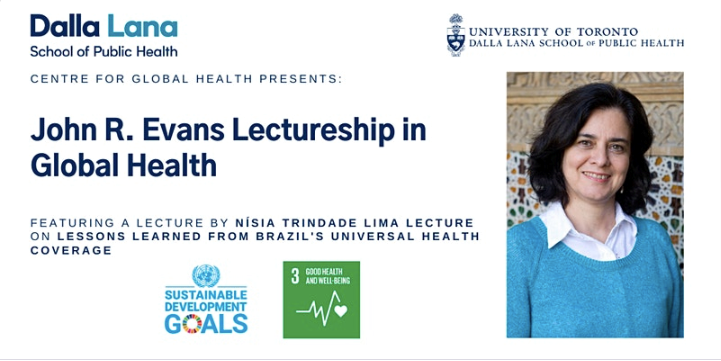System Leadership and Innovation students demonstrate leadership in COVID-19 Response
 April 20/2020
April 20/2020
It’s no coincidence that many of the U of T students leading the COVID-19 response are part of IHPME’s System Leadership and Innovation (SLI) Program. From curating resources and data to supporting health professionals and community members, several SLI students are emerging as future physician-leaders through system innovation and transformation....
CPTP is now CanPath
 March 27/2020
March 27/2020
The Canadian Partnership for Tomorrow Project (CPTP) is now CanPath, the Canadian Partnership for Tomorrow’s Health. This change is the result of extensive consultation with scientific leadership, funders, regional cohorts, participants and the National Strategic Advisory Council, in a national branding exercise that culminated on March 16, 2020. “Our Leadership Team carefully considered how the CPTP name represented the important work...
U of T Students Create Dashboard for COVID-19 Case Monitoring
 March 23/2020
March 23/2020
by Françoise Makanda, Communications Officer at DLSPH Two PhD students at the Dalla Lana School of Public Health have developed a dashboard tracking COVID-19 cases in Canada – a tool that is proving essential for researchers and news reporters across the country. “When we have this nice figure that shows...
Arjumand Siddiqi appointed Epidemiology Division Head
 March 20/2020
March 20/2020
Arjumand Siddiqi was appointed Head of the Division of Epidemiology in the Graduate Department of Public Health Sciences at the Dalla Lana School of Public Health on March 20, 2020. Siddiqi is an Associate Professor of Epidemiology and Canada Research Chair in Population Health Equity. She also holds appointments in...
DLSPH appoints Dionne Gesink as Acting Associate Dean, Academic Affairs
 March 10/2020
March 10/2020
Dionne Gesink was appointed Acting Associate Dean of Academic Affairs at the Dalla Lana School of Public Health on March 10, 2020. Gesink is a Professor of Epidemiology whose work focuses on generating new knowledge on restoring healthy relationships with a focus on the social epidemiology of sexual and reproductive...
DLSPH welcomes global health powerhouse Nísia Trindade Lima to launch new Centre for Global Health
 February 28/2020
February 28/2020
Global health is public health. With tremendous breadth and expertise in a diverse set of global health issues, DLSPH faculty, alumni and collaborators have cultivated strong partnerships with leading global institutions and public health leaders. As the Office of Global Public Health Education and Training transitions into DLSPH’s new Centre...
DLSPH welcomes Ophelia Michaelides as Manager of the Centre for Global Health
 February 10/2020
February 10/2020
Ophelia Michaelides joined the Dalla Lana School of Public Health as Manager of the new School-wide Centre for Global Health on January 27, 2020. Ophelia is a public health professional with experience in global health, health system strengthening, family medicine and primary health care. Through her previous management positions at...
Building Equitable AI for Public Health
 January 16/2020
January 16/2020
Training next generation to close gap in AI and health inequalities A pan-Canadian institute designed to train emerging public health and computational science researchers in equitable artificial intelligence (AI) will be launched this summer by an interdisciplinary team of Canadian scientists. Using interactive teaching methods, case examples and multidisciplinary team-based...
Targeting each of the four types of opioid-related stigma can bring health policy and social change
 November 25/2019
November 25/2019
By: Nicole Bodnar U of T researchers have identified four types of opioid-related stigma that depend on a variety of factors, including the context of opioid use, the social identity and networks of the person who is consuming the opioid, and what type of opioid is being consumed, including prescribed...
Perceived loss of social status linked to rising mortality rate of white Americans
 November 21/2019
November 21/2019
By: Nicole Bodnar The rising mortality rates of white Americans is due to a perceived loss of social status, not socioeconomic disadvantage, according to a provocative new study led by researchers at the Dalla Lana School of Public Health (DLSPH). “This is a startling finding,” said Arjumand Siddiqi, Associate Professor...